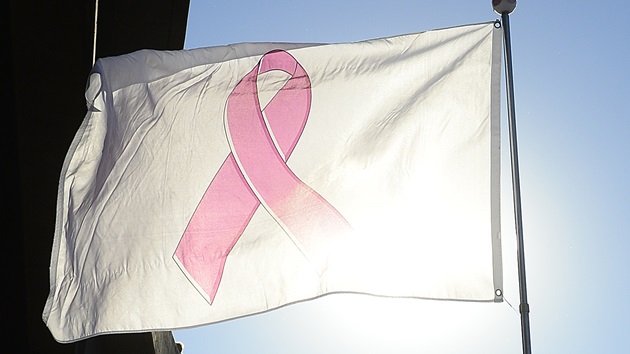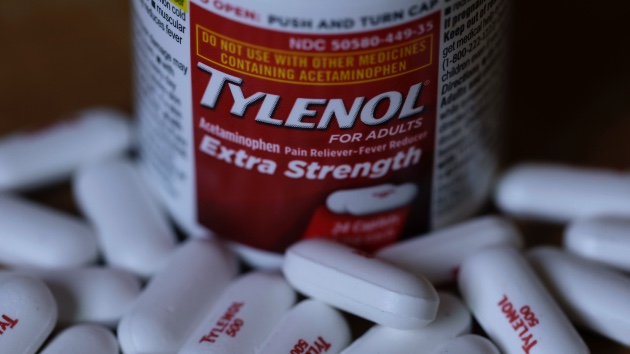Why the US may not be able to drop COVID restrictions like the UK
Written by luck on February 25, 2022

(NEW YORK) — Since the beginning of the COVID-19 pandemic, the United States has closely followed what the United Kingdom had done to combat the virus from its early response to its vaccination rollout.
Outbreaks in Great Britain have been harbingers of what’s to come in the U.S., and its policies have often helped shape America’s COVID response.
Over the past several weeks, the U.K. has been lifting COVID restrictions and, on Monday, Prime Minister Boris Johnson announced he was dropping the remaining rules in England including the requirement to self-isolate after testing positive, contact tracing and free administration of rapid tests.
In a speech to the House of Commons, Johnson said the country had to pivot away from preventing COVID-19 and “learn to live with this virus and continue protecting ourselves and others without restricting our freedoms.”
Seeing America’s closest ally drop its restrictions have led some to wonder if the U.S. should follow suit.
Currently, the U.K. is recording a daily average of 39,000 cases, down from a peak of 183,000 on Jan. 2 and an average of 126 deaths from a peak of 257 on Feb. 5, according to government data. Meanwhile, the U.S. is recording an average of 75,000 cases, down from a peak of 807,000 in mid-January and approximately 1,600 deaths a day compared to the peak of 2,600 on Feb. 2, according to the Centers for Disease Control and Prevention.
Public health experts are split with some saying it’s time for the U.S. to do similarly and treat COVID-19 as an endemic disease while others say lifting rules may not work for the U.S. right now because of a lower vaccination rate and a less robust surveillance system.
COVID spread in England will be ‘minimal’ due to high rate of vaccination
The largest change to the rules in England is that people who test positive for COVID-19 will no longer be legally required to self-isolate, or avoid contact with other people for a period of time to reduce the risk of transmission.
Once approved by Parliament, the requirement ended Feb. 24, although the government will continue to recommend that COVID-positive patients self-isolate but are not required to do so.
Dr. Wafaa El-Sadr, a professor of epidemiology and medicine at Columbia University Mailman School of Public Health, called the move a step in the right direction towards the “concept of living with COVID” and a shift from a mandate to personal responsibility.
“It’s a state where we expect people to essentially take responsibility and be accountable to doing the right thing,” she told ABC News. “This means someone who tests positive is aware of what they need to do to protect others during the period of time when they are infectious.”
She added that the U.K. government needs to communicate that “this doesn’t mean do whatever you want to do if you know you have COVID-19. It means that now we have shifted the responsibility and are giving you the tools to guide you in how we should behave.”
But other public health experts don’t think that this system can be implemented in the U.S. because it has a lower vaccination rate than England.
In England, 84.9% of those aged 12 and older are fully vaccinated and 65.7% have received a booster shot as of Thursday, according to the UK government.
By comparison, 73.3% of Americans aged 12 and up are fully vaccinated and 44.9% are boosted, according to data from the CDC.
The experts say this means, even if infected people don’t self-isolate, the virus wouldn’t have a major impact on the healthcare system in England as it would in the U.S.
“What they are doing is going to lead to more infections, but the consequences of increased transmission in the U.K. will be minimized by their very good rates of vaccination,” Dr. Bill Hanage, an associate professor of epidemiology at Harvard T.H. Chan School of Public Health, told ABC News. “That population-level immunity is going to be maintained, so even though the virus is circulating, it doesn’t cause disproportionate damage to healthcare.”
He continued, “There are lots of places in the U.S. that are not able to do that without risking much more severe consequences” in reference to several areas in the U.S. with low vaccination rates.
Genomic surveillance is better in the U.K.
Experts said one of the reasons the U.K. may be able to drop its COVID-19 restrictions is its strong genomic surveillance system, better than that of the U.S.
Genomic surveillance allows scientists to track new mutations and variants of COVID-19 and how quickly they are spreading.
About 60,000 samples are sequenced in the U.K. each week, according to the non-profit Wellcome Sanger Institute, which is contracted by the UK Health Security Agency to sequence COVID samples.
Meanwhile, more than 48,000 samples are sequenced each week in the U.S currently, according to the CDC, despite having nearly five times the population of the U.K.
What’s more, between Feb. 14 and Feb. 20, the U.S. submitted about 1,000 samples that underwent genomic sequencing to the global database GISAID while the U.K. submitted more than 15,000 samples.
This means the U.K. would be able to detect new variants much more quickly.
“The U.K. demonstrated a really phenomenal level of surveillance for this virus,” Dr. Stuart Ray, a professor of medicine at Johns Hopkins University, told ABC News. “They were the ones that helped us recognize the alpha variant and they had a higher level of genomic surveillance for this virus than the U.S. did at many junctures.”
“I think that they have demonstrated the utility of situational awareness of monitoring and testing to try to manage this pandemic. That’s a lesson I hope we took to heart. I’m not sure if relaxing rules while case rates are high is a lesson to learn or not, but we’ll see.”
Almost all adults in England are estimated to have COVID antibodies
As of the week beginning Jan. 31, more than 98% of the adult population in England are estimated to have detectable COVID-19 antibodies either from previous infection or from vaccination, according to the UK government, which some have pointed to as a reason for why restrictions should be dropped.
But the U.S. is not very far behind, with a nationwide seroprevalence survey of blood donors conducted by the CDC estimating 94% of those aged 16 and older have antibodies to the virus from vaccination or infection.
Of those, 28% in the U.S. are believed to be from infection. It’s unclear what the U.K. level from infection is.
Ray pointed out that it’s not clear from antibody tests whether people are immune to infection, severe complication and so on and that a high percentage of people with antibodies does not equate to high levels of immunity from high vaccination levels.
“I think if we had a very high vaccination rate, a very high level of immunity in the U.S., that relaxing some restrictions would make a lot of sense, and we would just need to articulate guidance for people for voluntary protections for themselves and the people around them,” he said.
Other infectious diseases experts say even though the U.S. vaccine rate is not as high as in the U.K, there is enough immunity in the nation.
Dr. Ali Mokdad, an epidemiologist with the University of Washington’s Institute for Health Metrics and Evaluation in Seattle, told ABC News the omicron wave infected as many as 60% of all Americans, giving them some form of immunity.
“We do not have as high a vaccination rate as the U.K., but we have the combination of vaccination and infection,” Mokdad, who helps lead a model that projects COVID-19 cases around the country, said. “In our estimate at IHME, 75% of Americans have immunity against omicron so we are basically very close to the U.K. in that regard.”
Studies have indicated infection with omicron, which is the current dominant variant, among vaccinated individuals can boost previously acquired vaccine immunity against other variants.
“Even if they had higher vaccination, we had higher infections, so you add the two together and we’re in the same boat as they are. So, whatever they did, we should do here in the U.S. In my opinion we should also stop these mandates in the U.S.,” Mokdad said.
Copyright © 2022, ABC Audio. All rights reserved.





